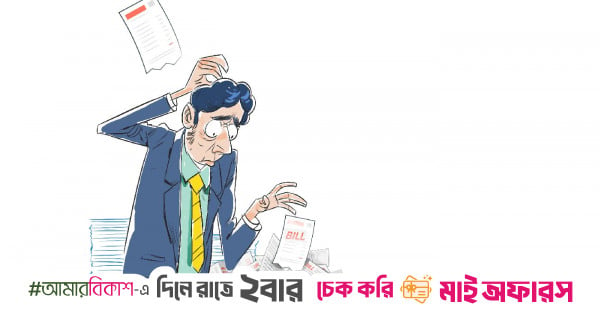More than half of private-sector employees in Bangladesh report that financial worries are affecting their work, while four in ten see a direct link between money stress and declining mental health, according to a new MetLife survey.
The Employee Benefit Trends Study (EBTS), covering over 700 employees across sectors including garments, banking, FMCG, telecom, NGOs, and manufacturing, paints a picture of a workforce that appears content but struggles beneath the surface.
- Job satisfaction is high, but advocacy is low.
78% of employees report being satisfied with their jobs, and 73% are satisfied with overall well-being. Yet 56% admit financial stress hampers work performance, and only 42% would recommend their employer to others.
“This disconnect signals an engagement crisis,” said SM Zulfiqar Ali, research director at the Bangladesh Institute of Development Studies (BIDS). “High satisfaction with work but low advocacy shows that employees are functioning, not flourishing. They’re surviving in a fragile system.”
Keep updated, follow The Business Standard’s Google news channel
- Financial anxiety is widespread.
Two out of three employees feel financially insecure, and 69% say employers should support financial well-being, including retirement savings. Yet 53% have no retirement plan.
Farzana Rahman, a mid-level manager at a telecom company in Dhaka, described the impact: “When you don’t know if you can pay next month’s school fees or medical bills, you cannot fully focus on your job. The anxiety eats away at your confidence.”
- Benefits drive loyalty and engagement.
Employees satisfied with benefits are twice as likely to be loyal, engaged, and productive. Yet only about one-third of employers provide access to insurance and wellness services, despite 78% of employees saying these benefits would improve loyalty.
Mahbubur Rahman Hira, HR head of a leading RMG firm, said: “But that mindset is outdated. The new generation doesn’t just want a paycheck; they want security, empathy, and respect.”
Even where benefits exist, they are often underutilised due to poor communication. Seventy percent of employees said they would use benefits more if they understood how others leveraged them, while one in four felt inadequately informed.
- A culture of care matters.
Flexible policies, wellness programs, and transparent communication correlate with higher engagement. Among Gen Z respondents, 83% ranked flexibility as their top demand.
Sadia Haque, a human resource management scholar at IBA, University of Dhaka, noted: “A few paid leaves or token wellness sessions don’t address the deeper problem, a lack of psychological safety and trust at work.”
- Employers face a productivity paradox.
56% of employers cite productivity and 49% cite engagement as their biggest challenges. Ala Ahmad, CEO of MetLife Bangladesh, said: “Workplace well-being is no longer philanthropy; it’s a strategy. Financial stress and inadequate benefits quietly undermine productivity and morale. Companies have an opportunity to lead by fostering a caring culture and better communication.”
Zulfiqar Ali warned: “Mental and financial health are not personal issues; they are productivity issues. Failure to address these concerns could turn Bangladesh’s demographic dividend into a demographic burden.”

